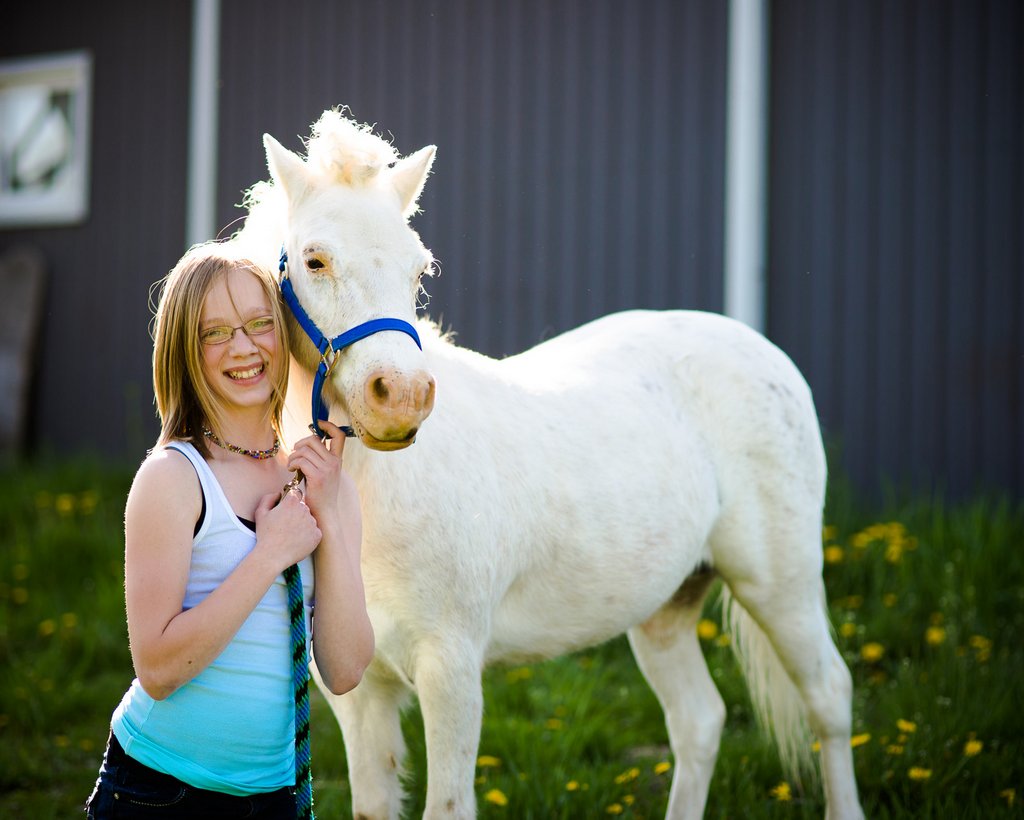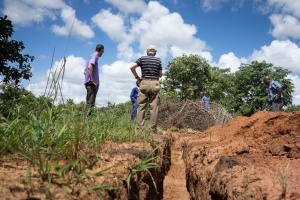September is a month of fresh starts. All around us, there are signs of newness: students returning to classes after four weeks of break, new posters and teaching aids on classroom walls as teachers prepare for the final term of the school year, blossoms and new leaves breaking out on trees as Zambian winter hints at giving way to spring, and bees are swarming the treetops by the hundreds as they collect nectar for this year’s honey crop. When it comes to our family, Ranen has returned to his class and now states that he loves school, our girls are anxiously awaiting their school materials so they can begin their new school years and… I’m beginning again on our blog.

A frangipani bloom
This isn’t going to be one of those “I’m-so-sorry-I haven’t-written-for-awhile” blog posts. While it’s true that I wish I had written more during the recent months, I’m hoping that you will give me a ‘pass’. After all, these past four months were really our first term of fully living and working at MICS. We spent several months living in limbo, then suddenly moved in our long-term home and jumped into jobs that require our full attention. We trust that those of you who know us, love us, and support us will understand the demand for our time and the new challenge we’ve been facing. That said, it’s time to crack open the curtains and let you know a bit of what’s been going on over here in a world so very far removed from Canada and the United States.
My work revolves around the daily operations and logistics of the school facilities. Plumbing and electrical issues are an on-going concern here (as they are in any institution). I work with our maintenance and grounds-keeping staff to ensure that our buildings are in good repair, lights work, toilets flush (and don’t leak!), locks actually lock and unlock, and the physical grounds are well kept. I’ve tackled some very large projects that have required immense amounts of planning, execution, and oversight. One significant project was the addition of another water tower for water storage.
Water is a constant concern here at MICS, as it is in all of Southern Africa. MICS, like everyone in Macha, relies on a borehole (a drilled well) to provide fresh water for drinking, bathing, washing, etc. The borehole is fitted with an electrical pump which pumps water into a storage tank six meters above the ground. That tank then supplies water to the entire campus. Over the past number of months, it has become apparent that our one storage tank didn’t give us adequate storage capacity, which meant that we were in danger of running out of water on a daily basis. This is particularly a problem on days when the electrical supply is off (which is a regular occurrence here) or if the borehole pump were to malfunction. We needed to have capacity to store enough water to last the school several days.
Over the past few months, I’ve managed the project of erecting another water tower, which now triples our water storage capacity (from 5,000 litres to 15,000 litres). It’s been a large project and a huge learning curve (as are most things I’m engaged in!), but I’m very pleased with the way it turned out.
Other projects, such as designing and costing out a perimeter fence and new electrical supply lines for the campus have kept me busy drafting, getting vendor quotes, compiling cost estimate spreadsheets, etc.
In the middle of all these large projects, I manage the weekly runs to town (75 kms away) for food and other supplies for the school, bill payments for services such as internet and electricity, and a hundred and one other tasks.
While I’m busy doing my job, Arja is equally busy managing the school’s finances, student records and office functions. Arja has spent the bulk of her professional life working in the finance industry. Add this experience to the fact that she is an extremely detail-oriented person, and she is well-suited to her role. She manages payroll, collecting school fees, accounts payable, etc. Working together with the rest of the MICS management team, Arja has been able to bring organization and clarity to the financial realities of MICS and to offload some of the burden from our school directors. She’s also taken on the responsibility of managing the school kitchen, working closely with staff to manage supplies and menu preparation for approximately 40 boarding students.
Now you now have a brief overview of what we’ve been doing. However, at the end of the day, I’m tempted to say, “So what?” After all, we all have jobs and we all accomplish tasks at those jobs each day. Ours aren’t really all that different from yours – we just happen to do them here in rural Zambia.
When I was the director of the international volunteer program for International Teams Canada, I regularly told our volunteers that the doing needed to be secondary, it was the being that was the important thing.
Being:
- in community
- teachable
- a servant
- reliant upon God
Relationships are, by far, the most important part of our work here. While it’s true that what we do is more tangible and invaluable to the operation of the school, it’s the intangible – our daily interactions with our Zambian colleagues that will make a lasting difference in the lives of people. As we shared our story with numerous groups before we came to Zambia, we were very clear that our goal was to build into people here – to work alongside, to empower, to develop friendships, and to pass on skills to the local community here. It’s found in the times when I pick up a tool and work side by side with Coster, Titus, Japheth, Keith, Guide, and the many other Zambian men I have the privilege of working with on a daily basis. It’s laughing together, and sharing a Coke after a hard day of work in the sun. It’s found in the moments of struggling to learn a new phrase in their language (while being laughed at!), and it’s found as we lie in the dirt under the truck in order to bolt the front bumper on after the bolts snapped. It’s found when Arja works together with Joyce and Gracious in the kitchen. It’s the smile offered as students come to the office to get a new notebook or pencil. It’s the small talk shared as she interacts with each staff member on pay day.

Coster and me on the new water tower
For our girls, it’s found in playing soccer, studying the bible and learning new songs with the MICS students. It’s found in the moments when Talya reads to the younger children and Kanah eats nshima and beans with the boarding students. And for Ranen, it’s found in his classroom, as he learns from a Zambian teacher, along with 27 other students (mostly Zambian), and he learns to adjust to a new way of doing school and life in Africa.
What is it? It’s that intangible connection we find (and sometimes struggle to find) as we build relationships with those around us. Their lives are very different from ours in many ways, and yet, as we work to break down barriers, to learn from each other, to do life together, we see that under all those differences, we really are the same.
As we look ahead to the next three months of this final school term of 2015, we know that we will be incredibly busy. Busy doing! And busy being, as well. We are anxious to have our friends, Joel and Julianne, Micah, Caleb and their new baby Nathaniel, back soon. We look forward to seeing our girls thrive with their new year of schoolwork, as we continue to learn together how to best manage this self-directed study plan we have embarked on. And we look forward to seeing God at work – in the day-to day, mundane tasks and in the big, unexpected ways.
As always, we are so thankful for you – all of you – who support us, pray for us, follow our blog (if anyone still does after such a long silence!), and those of you who drop us notes and send us packages. And for those of you still reading, we’ll try to do better at writing and sharing snippets of our lives here in Macha.
















